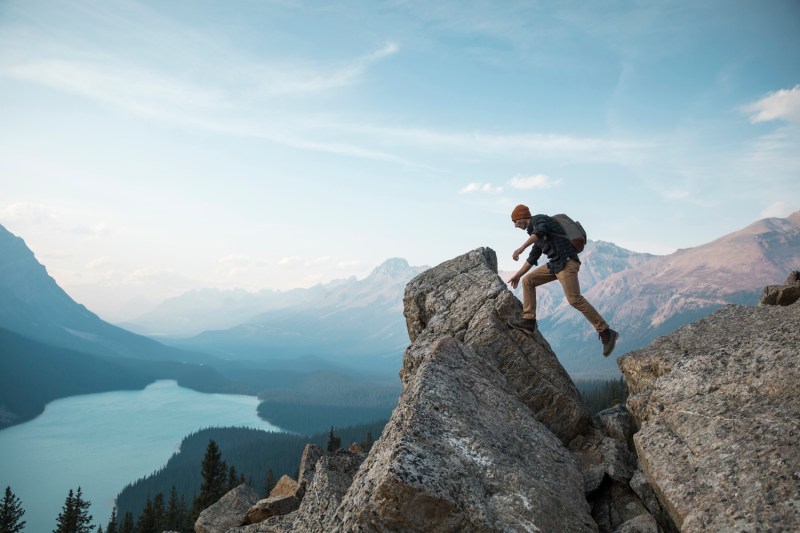
Hiking is an often-overlooked form of exercise in our modern, tech-obsessed society. Most guys are far more likely to go for a run in their neighborhood, hit the gym for cardio and weights workouts, or head to the tennis or basketball court with a buddy. However, hiking offers a welcomed departure from the hustle, bustle, and connectedness to electronics that largely typify our everyday life these days, immersing you in the serene natural soundtrack of Mother Nature and giving your eyes and ears a break from screens, programming, and manufactured stimulation. It’s also a viable form of cardiovascular and muscular exercise, enabling you to burn calories and stoke your metabolism like other forms of exercise.
Having a decent estimate of the number of calories you burn while hiking is helpful if you’re trying to lose weight, maintain your weight, or even put on mass, as your energy expenditure during physical activity factors into half of the ever-important “calories in versus calories out” truism of body weight manipulation. It also helps inform your fueling needs so that you can hit the trails with ample hiking snacks to power you up and down all the peaks you hope to summit without bonking from low blood sugar while you’re stuck thick in the woods.
Unfortunately, ballparking the number of calories you burn while

Factors that affect the number of calories burned hiking
Because it’s not a cut-and-dry equation, we need to look at the various factors that affect the number of calories you burn on a hike. Here are the things that will define the calories you burn

Body weight
As with all forms of exercise, the number of calories burned while

Body composition
Less significant than total body weight as a factor in caloric expenditure but still significant is your body composition, or the relative percentage of lean body mass and body fat. Muscle tissue is far more metabolically active than adipose tissue (fat) — especially during exercise — which means that if you have a more sculpted build, you’ll burn more calories per hour
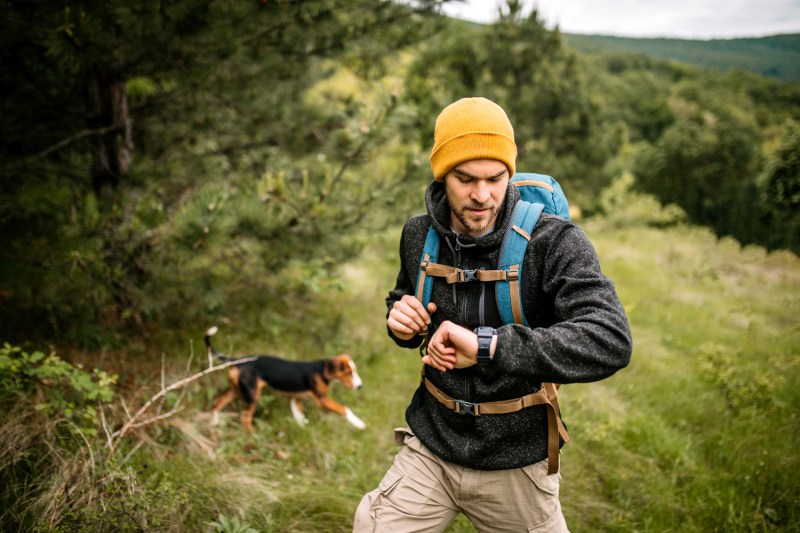
Speed
The faster you hike, the greater the intensity of the workout. Your pace dictates the distance you hike in an hour, which ultimately determines how many calories you will burn. Moreover, much like the principle applied with HIIT workouts, if you hike at a vigorous enough intensity, you’ll stoke your metabolism so significantly that you’ll continue to have an elevated metabolic rate or burn additional calories, even after your hiking boots have come off. Using trekking poles can also increase the speed, intensity, and muscular demand of the hike, and thus, the number of calories burned.
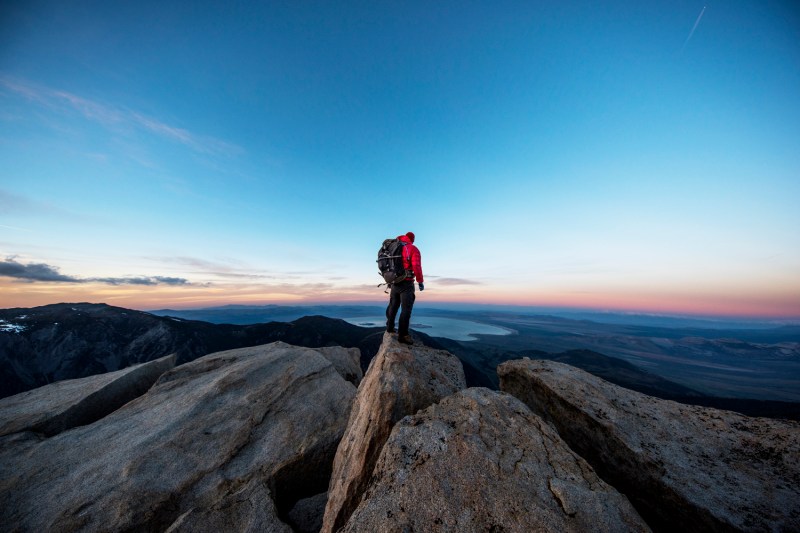
Terrain
One of the unique factors affecting the number of calories burned
Hikes over challenging and varied terrains, such as those with long or steep inclines or lots of rocky sections, burn more calories than flat hikes with even, smooth walking trails because the muscular work to power up hills or to stabilize when dealing with unpredictable footing burns additional calories. If you’re looking to torch some serious calories, take on that mountain peak you’ve been eyeing instead of the flat garden path that meanders around a small brook.
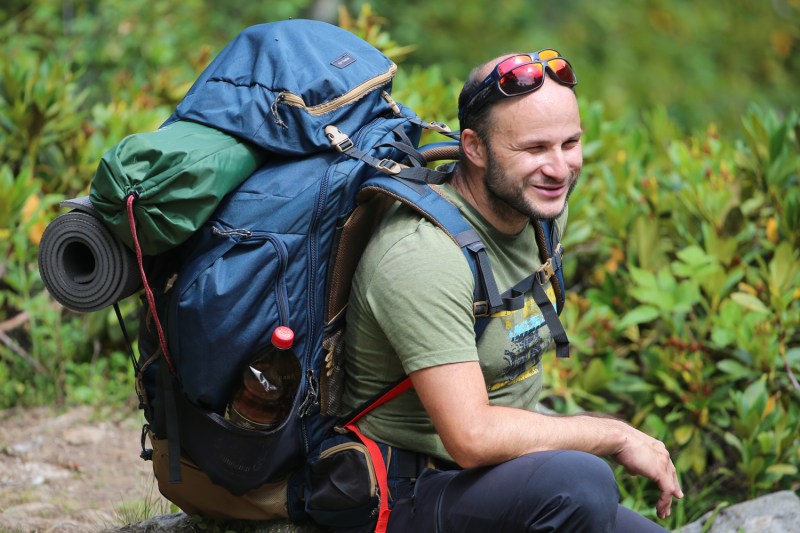
Pack weight
It probably comes as no surprise that carrying a day pack or backpacking with a heavy pack burns more calories. A heavier pack may increase your energy expenditure by 50 to 100 calories per hour

Fitness level
If you’ve ever hit a weight loss plateau despite following your diet plan to a T and keeping up with your usual
However, if you continue to run the same five-mile route at the same pace for the next six weeks, it will become easier and easier. Your muscles become more efficient at extracting oxygen from the blood, neuromuscular connections operate in a more coordinated manner, and your heart, lungs, and muscles become stronger. These adaptations improve your running economy and the number of calories you burn during the same run decreases. The same principle holds true for
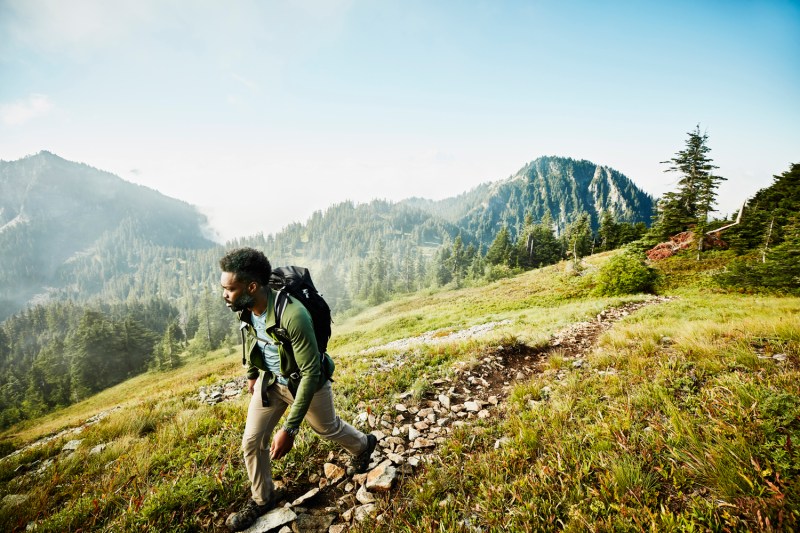
How many calories does hiking burn?
So, with all that said, determining the number of calories you burn on a hike doesn’t necessarily have an easy answer. Your best approximation will come from wearing a heart rate activity monitor. This will gauge your exercise intensity and the associated metabolic cost. If you don’t have a fitness tracker or an app on your phone, the metabolic equivalent (MET) formula can be used to provide a generalized estimate of how many calories you’ll burn
Calories burned = MET (6) * weight (kg) * time (hrs)
The MET value relates to the amount of oxygen used in the particular activity. It is generally between 6 and 7 for
For example, if you’re a 180-pound (82 kg) guy

Do you burn more calories running than hiking?
In general, you will burn more calories running than
Here’s an illustration of the difference:
- On average, a person burns around 400 calories per hour hiking at a moderate pace (3 to 4 mph).
- Running at a moderate pace (6 to 8 mph) for the same person and hour could burn closer to 600 to 800 calories.
However, there are some nuances to consider. For example, hikers often hike for longer durations than runners can comfortably run. So, if someone hikes for 2 hours and burns 800 calories, it might be comparable to a shorter, more intense run.
Though burning calories is certainly one of the perks of a challenging hike, even if you’re just out there to get some fresh air and move your body at a leisurely pace, you’ll reap plenty of rewards from any hike, whether it leaves you breathless from exertion or breathless simply from the beauty of the nature surrounding you.



